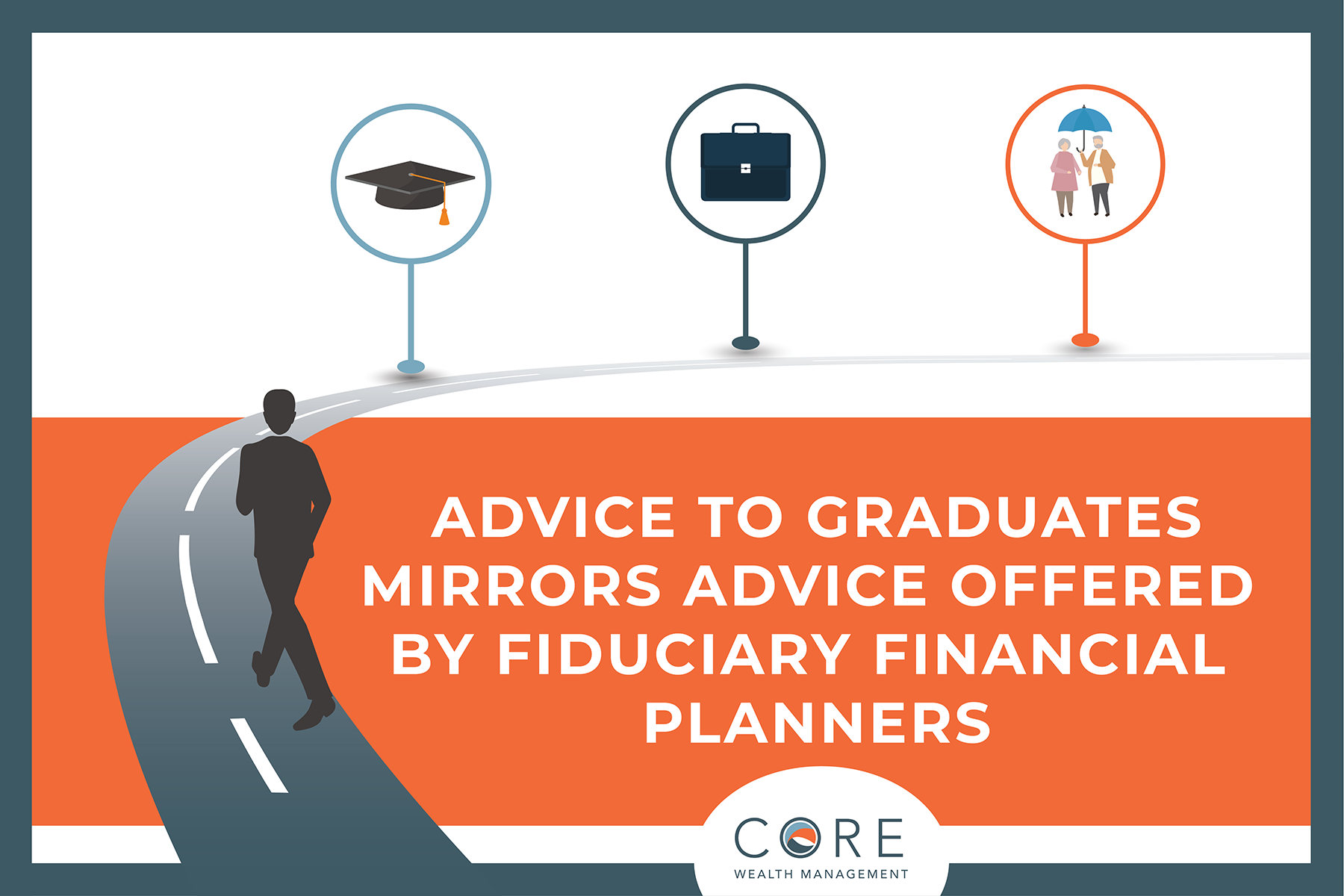
We are in the midst of graduation season. While I do not have a graduate this year, I have been reading and listening to commencement addresses; renowned speakers offering insight to students as they get ready to embark on the next phase of their journey, be it college, graduate school or entering the workforce. I cannot help but notice the parallels between the principles of financial planning and the advice given to these graduates.
Setting Goals
Financial planning begins with setting clear, achievable goals, whether it’s buying a house, saving for retirement, or starting a business. Similarly, graduates are encouraged to set personal and professional goals that align with their passions and values. Having well-defined goals provides direction and motivation.
Develop a Plan
Once goals are identified, it is prudent to put together a plan to serve as a roadmap detailing how those goals will be achieved. Graduates are encouraged to adopt a forward-thinking mindset, consider their long-term aspirations, and take proactive steps to achieve them. This approach is exactly what we do when we are constructing a financial plan. Whether it’s defining career goals, setting savings targets, starting a family, buying a home or saving for college, a well thought-out plan, lays the foundation for a secure and fulfilling future and increases the likelihood that goals will be achieved.
Enjoy the Journey
In life, we are so focused on where we want to go and what we want to achieve that we often do not appreciate the process of getting there. While it is important to set goals and build a path to achieve them, taking a step back, relishing the small milestones and appreciating accomplishments along the way is critical. Life, like financial planning, is all about balance. Our tomorrows are not guaranteed, so while we can plan for them, it is imperative to make sure that we enjoy today and the journey we are on.
Invest and Capitalize on the Power of Compounding
Invest early. When it comes to saving and investing, the earlier we start, the more the power of compounding can work for us, and the larger accounts can grow. The same is true for each of us as individuals – if we invest in ourselves – in our education, in learning new skills, in building relationships, in exposing ourselves to new ideas and viewpoints – we become more well-rounded and open-minded individuals and can bring more to the endeavors we choose to undertake and the challenges we face. Adopting a growth mindset – both personally and when it comes to finances – is invaluable.
Let Values Drive Your Decisions
Understand your values and what is most important to you. Over our lives, we will be faced with countless choices. While some of the decisions we make will be good ones, others will not work out as well. But if the decisions we make align with our core values, we can know that we made a good decision even if the outcome was not what we hoped. This is the same principle we apply to investing – we adopt an investment philosophy and apply that philosophy to our investment decisions – more times than not, that philosophy will lead to a good outcome, but not always. It doesn’t mean it was a bad decision.
Accept and Appreciate Uncertainty
In life the only thing that is certain is uncertainty. It is impossible to control everything, so rather than trying to, we suggest focusing on what can be controlled. Make the best choices we can based on what we know today, have confidence in our convictions and look forward, not back. When it comes to our finances, we can control how much we spend, how much we save, and how much risk we choose to take. In life, we can control how we spend our time and who we spend our time with. Rather than expending energy worrying and anticipating what might come to pass, embrace uncertainty, and view it as an opportunity with infinite potential.
Embrace Flexibility
Adaptability is critical in our ever-changing world. Economic conditions, career paths, and personal circumstances are subject to fluctuations and uncertainties, requiring individuals to be flexible and resilient in their approach. Embracing change, learning from failures, and adjusting course as needed, are essential skills for navigating life’s twists and turns as well as one’s financial life.
Seek Professional Guidance
In both financial planning and life after graduation, professional guidance can provide invaluable insights and expertise. Just as individuals turn to financial advisors for personalized financial strategies, graduates can benefit from mentors, career coaches, and industry experts who offer guidance, support, and networking opportunities. Leveraging the knowledge and experience of others can accelerate growth and success.
Don’t Underestimate the Value of Time
As parents of graduates are learning far too quickly, time is so precious. Financial goals tend to be focused on “accumulating things” and “having stuff.” Interestingly, at the end of one’s life, rarely does anyone, no matter their net worth, wish that they had more stuff. What they wish for is more time spent with those they love doing the things they most enjoy. Spend your time wisely and don’t take it for granted; it is truly your most valuable asset.
For both recent graduates as well as those planning for their financial future, the core principles guiding your journeys share remarkable similarities. Both require clear goal setting, a forward -looking mindset, a willingness to adapt, invest, and ask for help, and a commitment to remain steadfast in what matters most. Those who embrace the future with determination, perseverance, and a willingness to learn and grow along the way will find the most success and fulfillment.

